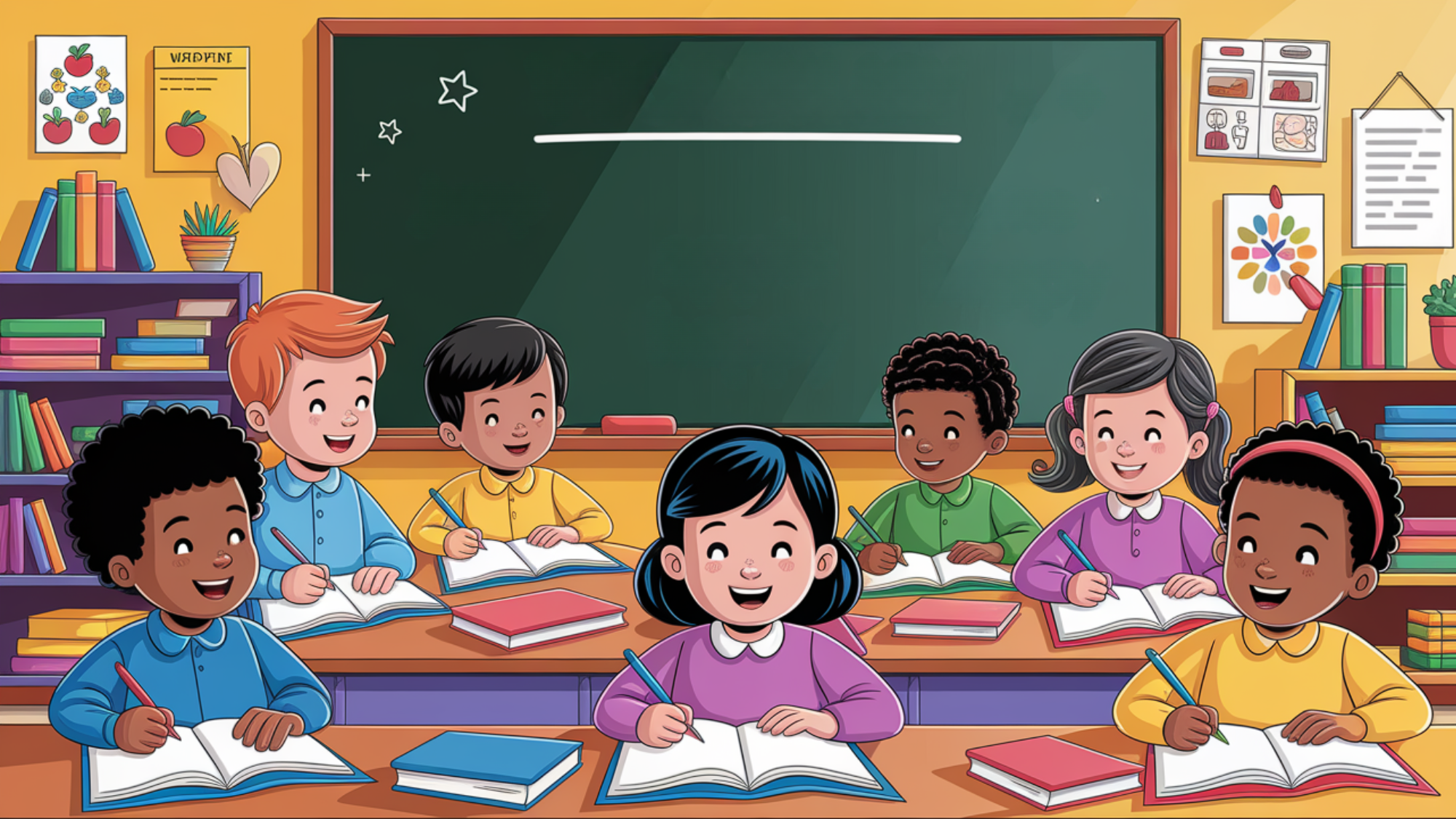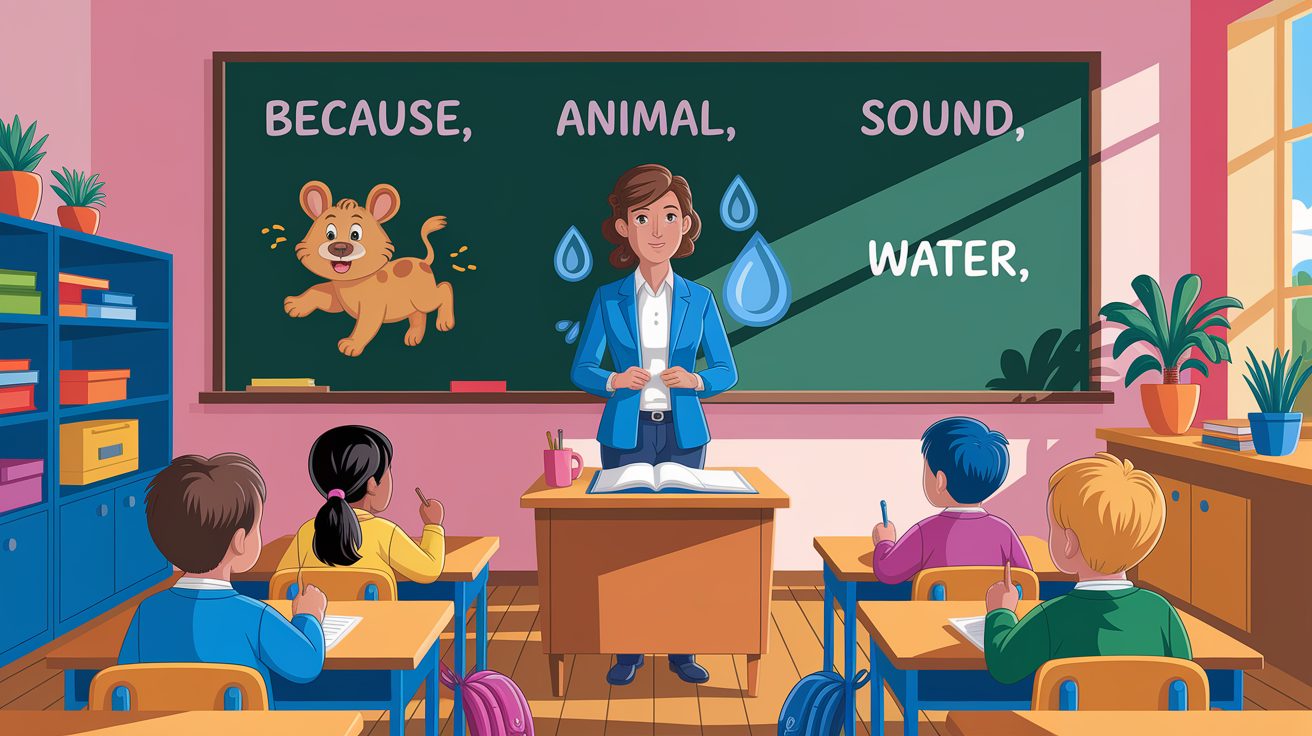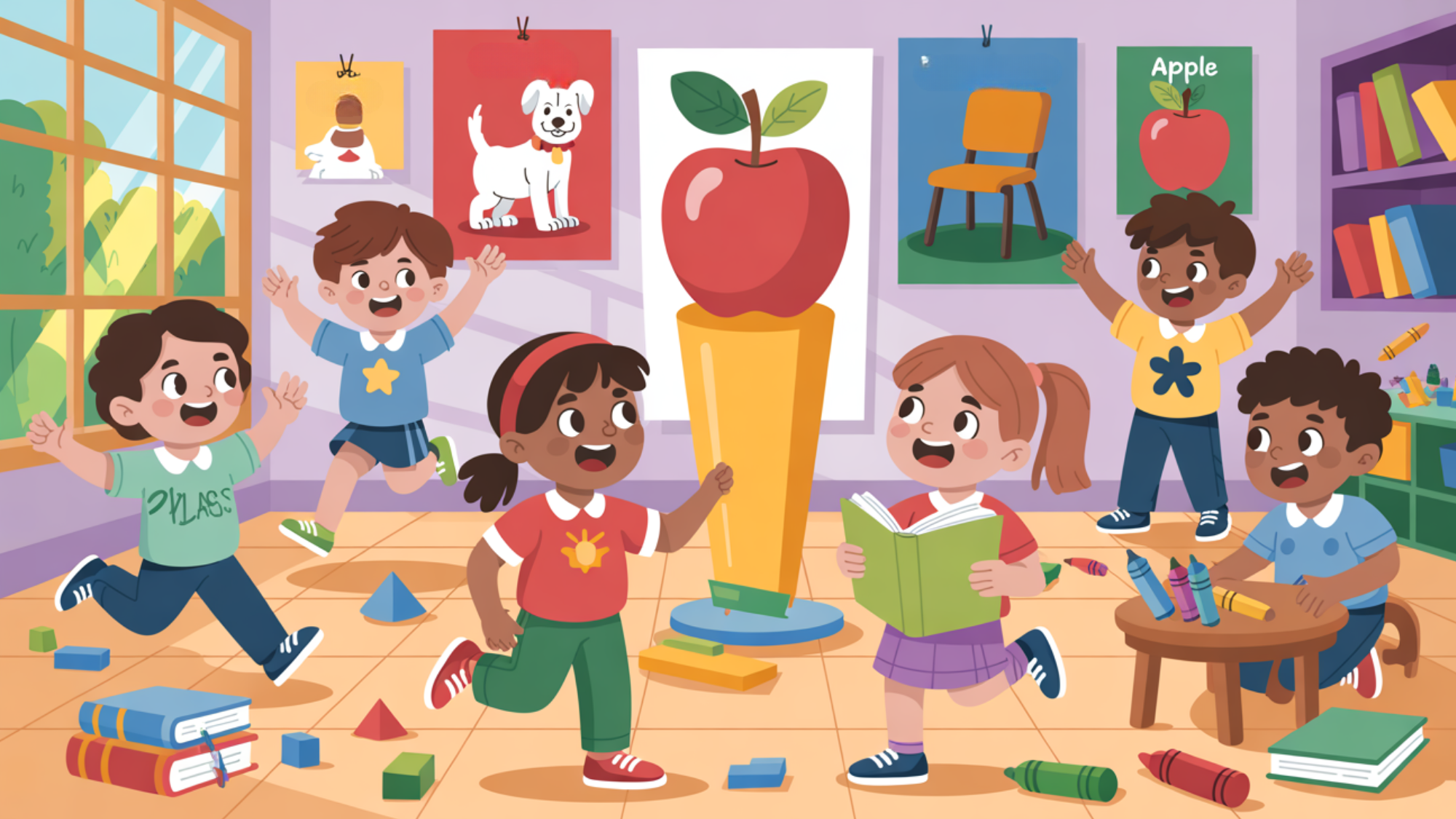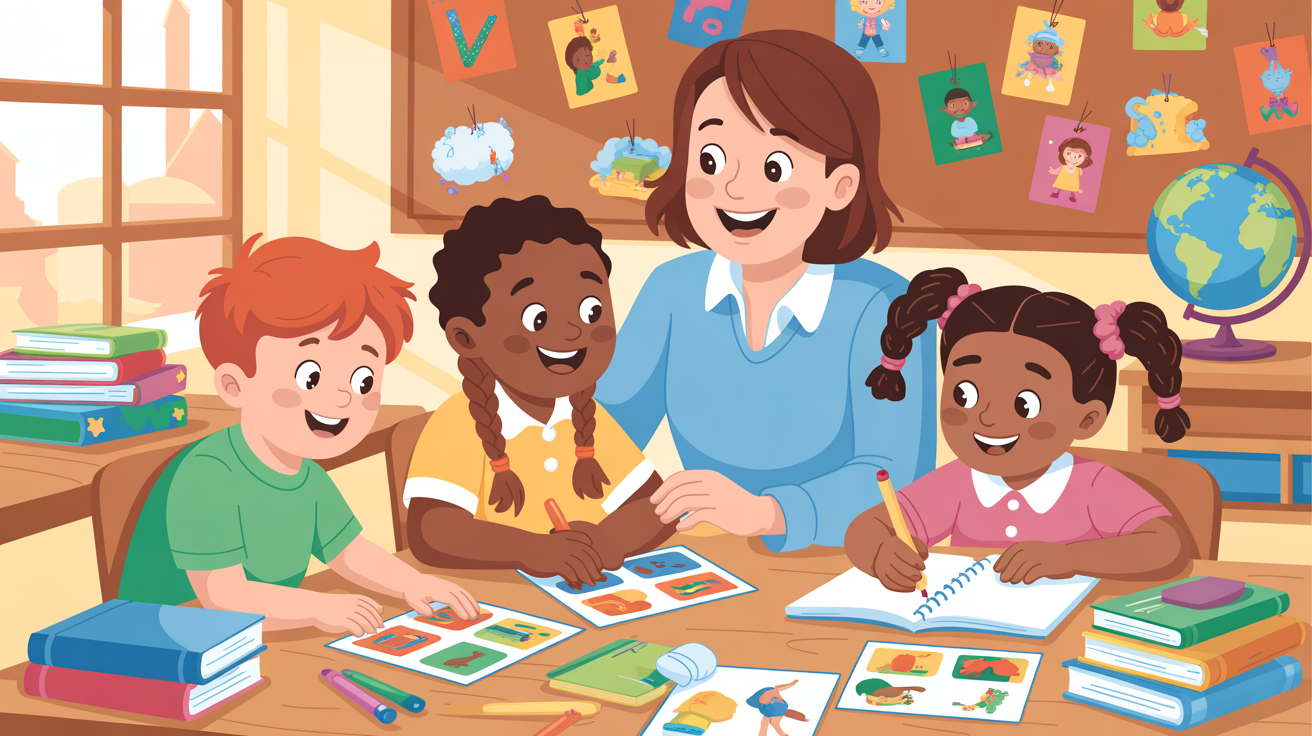50 Essential 2nd Grade Words Every Child Should Know

Does your second grader struggle to express their thoughts clearly or hesitate when reading aloud?
Most second-graders struggle with reading and writing due to limited vocabulary, which hampers their progress and confidence.
The good news is that mastering 2nd grade words can completely change your child’s learning experience.
A strong vocabulary helps students read fluently, write clearly, and express confidently, creating a positive cycle that supports success across subjects.
This guide offers the top essential 2nd-grade vocabulary words, organized by categories for easy learning.
It includes teaching strategies, fun activities, and resources to help your child or students build their word knowledge effectively and enjoyably.
What Are 2nd Grade Words?
Second-grade vocabulary words are carefully selected terms that align with the developmental reading and language skills of 7- and 8-year-old children.
These words help students transition from basic phonics to meaningful reading comprehension.
At this grade level, students typically learn 200-300 sight words while expanding their knowledge of descriptive language, action words, and common nouns. The goal is to help children express detailed thoughts both verbally and in writing.
These vocabulary words support reading fluency by reducing the mental effort needed to decode familiar terms.
A strong 2nd grade vocabulary helps children follow classroom instructions, participate in discussions, and complete writing assignments with greater independence.
Top Most Commonly Taught 2nd Grade Words

Here are the essential vocabulary words every second grader should master, organized for easy learning and practice –
-
Because – for the reason that
-
Before – earlier than; in front of
-
After – later than; following
-
Always – at all times; every time
-
Around – on all sides; near
-
Found – discovered; located
-
Every – each one; all
-
Right – correct; opposite of left
-
Sound – noise you can hear
-
Water – clear liquid we drink
-
Together – with each other
-
Another – one more; different
-
Animal – living creature like cats or dogs
-
School – place where children learn
-
Mother – female parent; mom
-
Father – male parent; dad
-
World – the Earth and everything on it
-
Still – not moving; continuing
-
Should – ought to; what’s best to do
-
Those – pointing to things far away
-
Each – every single one
-
Which – what one; asking about choices
-
Their – belonging to them
-
Said – spoke; told
-
Many – a lot of; numerous
-
Some – part of; not all
-
Time – hours, minutes, or when things happen
-
Very – extremely; really
-
When – at what time
-
Come – move toward; arrive
-
Work – job; effort to do something
-
Through – from one side to the other
-
Back – return; rear part
-
Much – a great amount
-
Before – earlier; in front of
-
Line – straight mark; row of people
-
Right – correct; direction opposite of left
-
Too – also; more than enough
-
Means – ways to do something
-
Old – not young; from long ago
-
Any – one or some; it doesn’t matter which
-
Same – exactly alike; not different
-
Tell – say; give information
-
Boy – male child
-
Follow – go behind; come after
-
Came – arrived; moved toward
-
Want – wish for; desire
-
Show – let others see; display
-
Also – too; in addition
-
Around – on all sides; in a circle
These words appear frequently in 2nd-grade reading materials and form the building blocks for more complex vocabulary development.
Category Breakdown of 2nd Grade Vocabulary

Understanding different types of words helps students learn more effectively. Here’s how 2nd-grade vocabulary breaks down into main categories:
1. Action Words (Verbs)
These words describe what people, animals, or things do. Examples include: jump, sing, dance, run, walk, play, read, write, eat, sleep, laugh, and cry. Action words help children create more engaging sentences and tell more compelling stories about their daily experiences.
2. Describing Words (Adjectives)
These words tell us more about people, places, or things. Common examples are: bright, small, funny, tall, short, happy, sad, big, little, fast, slow, and pretty. Describing words help students paint clearer pictures with their words when speaking or writing.
3. Common Nouns
These are everyday people, places, and things that children encounter on a regular basis. Examples include: apple, chair, dog, school, house, book, car, tree, friend, and family. These nouns form the foundation for building sentences and expressing ideas about the world around them.
4. Words for Everyday Use
These include polite words and common expressions that children use in daily conversations. Examples are: please, thank you, sorry, today, yesterday, tomorrow, hello, and goodbye. These words help students communicate respectfully and clearly in social situations.
How to Teach 2nd Grade Words Effectively

Making vocabulary learning fun and interactive helps children remember words better and builds their confidence. Here are proven methods for 2nd graders:
Key Teaching Strategies
- Use picture flashcards and vocabulary games like bingo or memory-matching
- Create word scavenger hunts around the house or classroom
- Practice sentence building with new words about topics children enjoy
- Include new vocabulary in daily conversations and reading time
- Encourage children to keep word journals with drawings or sentences
- Repeat words in different contexts using songs, rhymes, or stories
Daily practice significantly improves vocabulary. Read aloud often, pause to discuss new words, and have children write short paragraphs with new words about their experiences.
Consistency is key; children typically need multiple exposures to a word in different situations before it becomes part of their active vocabulary. Be patient and celebrate small wins along the way.
Why Mastering 2nd Grade Words is Important
Second grade is a critical turning point where vocabulary mastery directly influences a child’s success across subjects. A strong vocabulary improves reading fluency and comprehension and boosts confidence.
The connection between vocabulary and academic performance extends beyond language arts into science, social studies, and math word problems.
When children understand key terms, they can focus on learning new information rather than struggling with basic language barriers.
Developing vocabulary skills helps third-graders and beyond. A strong foundation enables children to adapt to complex materials, creating a positive cycle that fosters academic confidence.
Resources for 2nd Grade Word Worksheets and Tools
Finding the right materials can make vocabulary learning more effective and enjoyable for both children and educators. Here are valuable resources to support 2nd-grade word development:
| Resource Type | Description | Link/Recommendation |
|---|---|---|
| 2nd Grade Vocabulary Worksheets | Printable worksheets for practicing vocabulary through matching, sentences, and word identification. | Education.com Worksheets |
| Vocabulary Games | Online games to reinforce 2nd-grade vocabulary in a fun, interactive way. | ABCmouse Vocabulary Games |
| Flashcards | Digital/printable flashcards for word recognition and memory. | Quizlet Flashcards |
| Vocabulary Apps | Apps for engaging word practice with quizzes and games tailored to 2nd grade. | Endless Learning Games |
| Free Tools for Teachers | Free printable resources for teachers, including word lists and activities. | K5 Learning Worksheets |
By utilizing these resources, parents and teachers can make learning 2nd-grade vocabulary both effective and enjoyable, setting a strong foundation for language development.
Conclusion
Building a strong foundation in second-grade vocabulary is essential for academic success. The keywords in this guide serve as building blocks for reading confidently, writing clearly, and communicating effectively.
Regular practice using the teaching strategies and resources outlined here will help your child or students master these essential vocabulary words.
Remember that learning is most effective when it feels enjoyable and connects to children’s everyday experiences and interests.
Start using these words daily in conversations, reading, and writing. Pick five from our list and practice this week. Your child’s better communication will be the best reward.
What’s your favorite method for teaching vocabulary to second graders? Share your successful strategies and experiences in the comments below; other parents and teachers would love to hear your tips!






